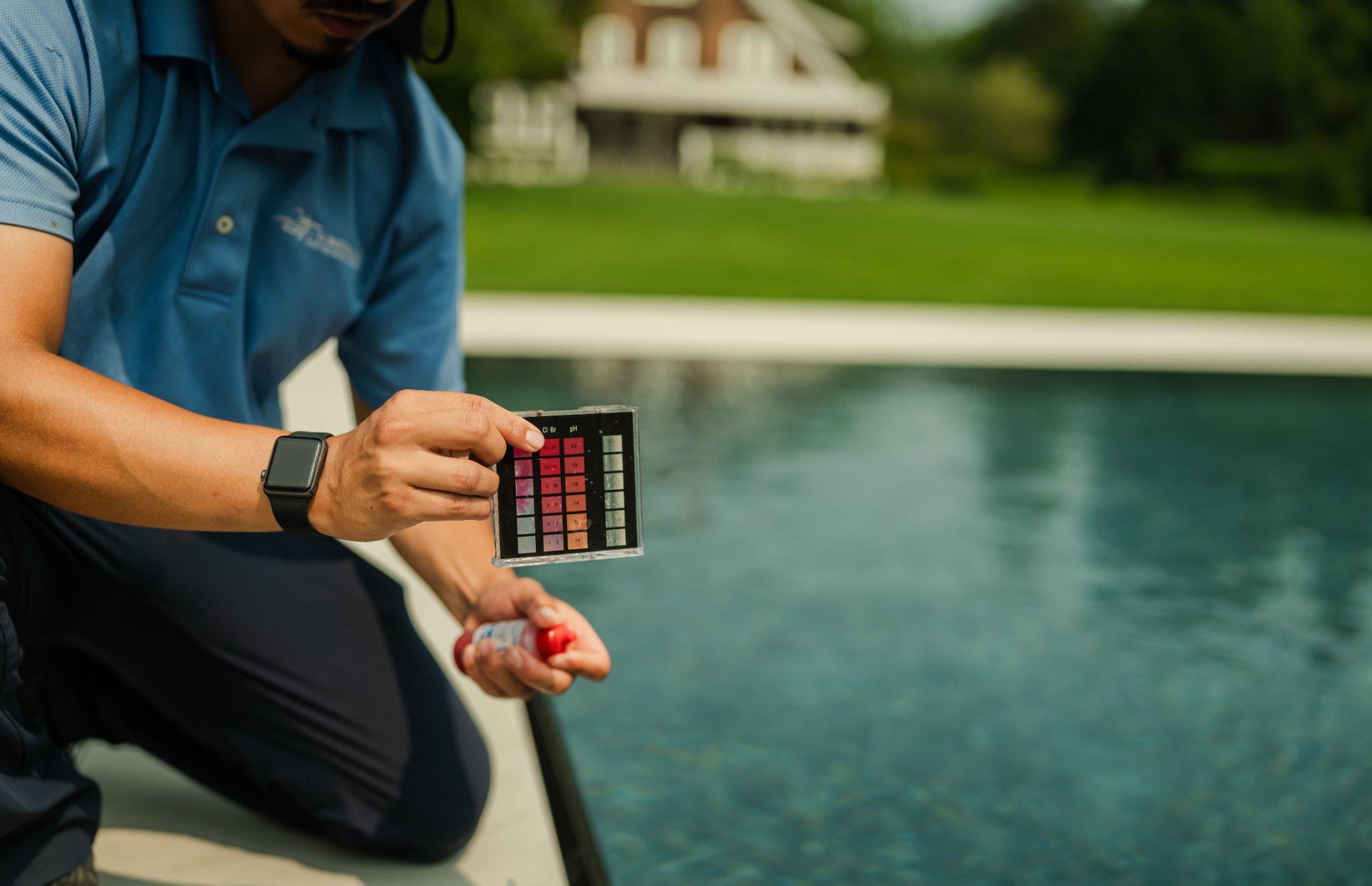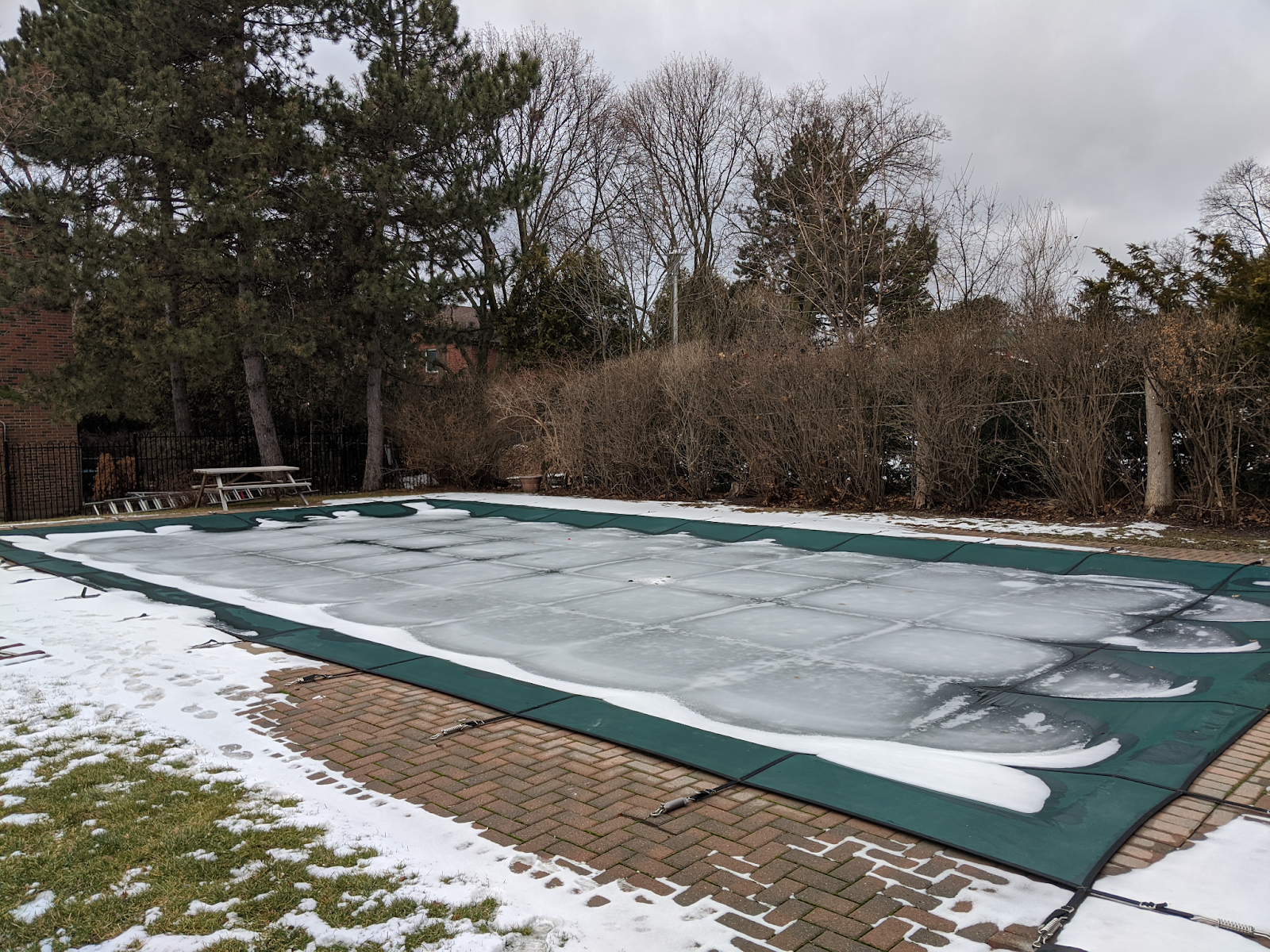While some customers keep their pools open year-round if you do choose to close the pool, doing so properly is essential to maintaining its longevity and ensuring a smooth opening the following season. A few simple steps and considerations are all it takes to protect your pool from winter damage and make the reopening process easier.
This article discusses important tips for closing your inground pool, touching upon everything from timing and preparation to winterization and essential tools. Whether you have a residential pool or a commercial pool, these guidelines will help you safeguard your investment.
Preparing the Pool

You must prepare the pool adequately to start the closing process. Begin by thoroughly cleaning the pool by skimming the surface, brushing the walls, and finally, vacuuming the floor. This step ensures that no debris or contaminants remain in the pool during the offseason.
After cleaning, test the water chemistry and balance it accordingly. Adjust the pH, alkalinity, and sanitizer levels to their recommended ranges. This prevents the water from becoming imbalanced and causing algae growth or corrosion.
Finally, consider lowering the water level to protect against potential freeze damage. Drain the water slightly below the skimmer level, taking care not to drain it completely.
Winterizing the Water Source

Properly winterizing the water source is crucial to avoid freezing and potential damage to your plumbing. Start by draining and disconnecting the water source, such as the supply line from the main pump or any water features connected to the pool. Remove any remaining water from the lines using a shop vacuum or air compressor.
Make sure to follow the manufacturer’s instructions and consult professional residential pool services or commercial pool services if needed. Consider using anti-freeze and winterizing plugs to seal the plumbing openings and prevent water from entering the system during the off-season.
Covering the Pool

A key step to closing your inground pool is covering it securely. Choose a high-quality pool cover that fits your pool’s dimensions and shape. A properly fitting cover prevents debris, leaves, and other foreign objects from entering the pool during the off-season.
Start by cleaning and drying the cover before installation. Lay the cover over the pool, ensuring it extends to the edges and overlaps the sides adequately. Use water bags, cover clips, or a combination of securing methods to hold the cover in place. This prevents wind from lifting the cover and allows for proper water drainage.
Dos and Don’ts for Closing an Inground Pool
Here are some important dos and don’ts to ensure a successful pool closing:
Dos
- Follow the manufacturer’s guidelines and recommendations for winterizing your specific pool equipment and accessories.
- Consider seeking professional residential pool services or commercial pool services like Tortorella if you’re unsure about any aspect of the closing process or if you lack the necessary tools and expertise.
- Remove all pool accessories such as ladders, handrails, and diving boards before closing. Clean and store them properly to prevent damage during the off-season.
Don’ts:
- Don’t neglect water chemistry balance even though the pool won’t be in use. Improperly balanced water can lead to corrosion, staining, or other issues.
- Don’t drain the pool completely. Completely draining an inground pool can cause structural problems, such as shifting or cracking.
- Don’t overlook pool cover maintenance. Regularly inspect the cover for tears or damage and address any issues promptly to maintain its effectiveness.
Finally, here are some basic pool maintenance tips if you use your pool infrequently during the winter months.
Essential Tools and Supplies
It’s important to have the necessary tools and supplies on hand when winterizing your inground pool. Here are some essentials:
- Pool cover: Choose a durable and properly sized pool cover to protect your pool during the off-season.
- Winterizing chemicals: Use winterizing chemicals to balance the water chemistry and protect against algae and other contaminants.
- Pool brush and skimmer net: Clean the pool thoroughly before closing using a brush and skimmer net.
- Air compressor or shop vacuum: Use an air compressor or shop vacuum to remove water from plumbing lines and equipment.
- Pool cover pump: If your pool cover collects excess water, a cover pump will help remove it and prevent damage.
Trust Tortorella for Expert Residential and Commercial Pool Services
Looking for professional assistance in closing your inground pool? Contact our experienced team at Tortorella, the leading provider of residential and commercial pool services. Our expert technicians will guide you through the process, ensuring your pool is winterized effectively and remains protected during the off-season.
Trust Tortorella for all your pool maintenance needs from opening to closing.
